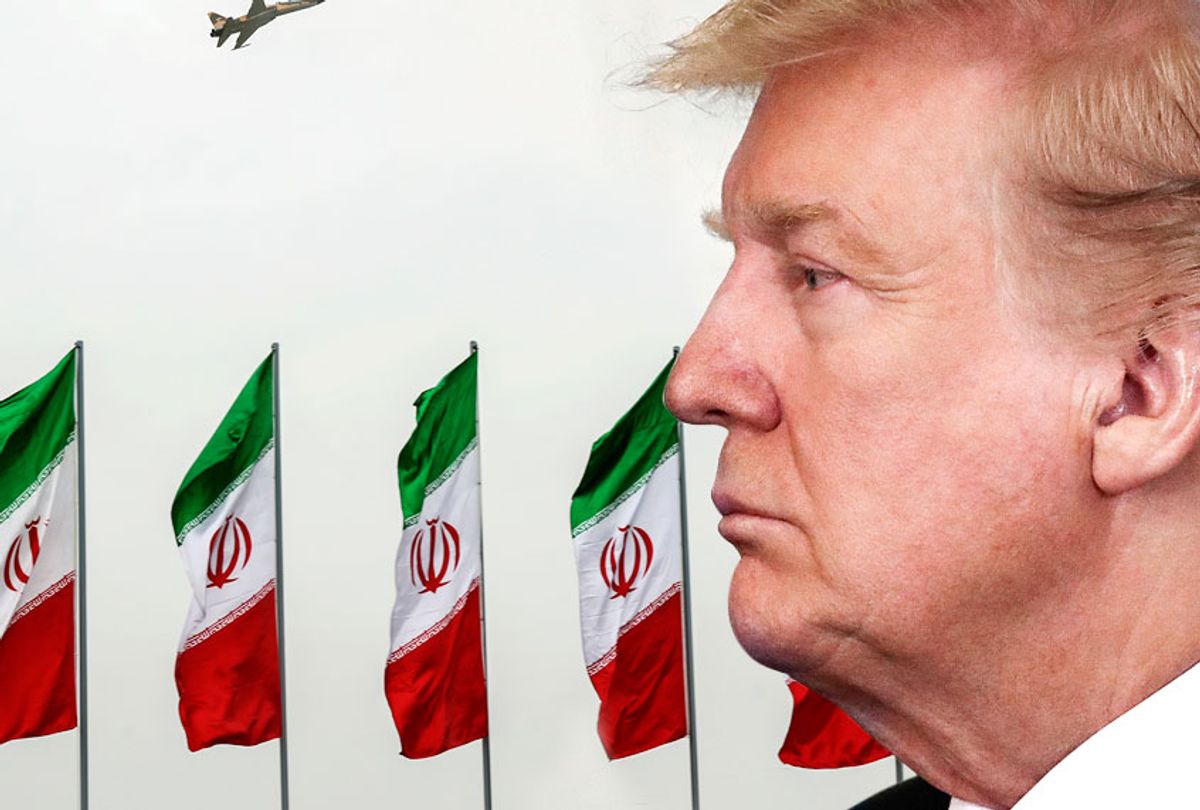The Pentagon will submit a plan to President Donald Trump that could result in the U.S. sending as many as 10,000 troops to the Middle East region as tensions with Iran continue to fester.
With the goal of bolstering American defenses against possible threats from Iran, the plan is presumed to be presented Thursday to Trump, according to The Guardian. Even if Trump approves the plan, it is unclear if he would send all 10,000 troops suggested by the Pentagon or perhaps a smaller group. No final decision has been made, the outlet reported.
Pentagon officials have reportedly said their plan was not developed in response to a specific new threats from Iran, and scant information has been provided about what potential threats do exist. "Our biggest focus at this point is to prevent Iranian miscalculation," Acting Defense Secretary Patrick Shanahan told reporters earlier this week regarding the Trump administration's larger policy toward Iran.
In general, the Trump administration has pursued a hardline policy against Iran — a stark contrast to the approach undertaken by former President Barack Obama. After pulling America out of the Iran nuclear deal in 2018 — that deal had been a cornerstone of Obama's foreign policy legacy — Trump cracked down last month on petroleum exports from that country.
In a press conference explaining that decision, Secretary of State Mike Pompeo claimed that "with the announcement today, we’ve made clear our seriousness of purpose. We are going to zero. How long we remain there, at zero, depends solely on the Islamic Republic of Iran’s senior leaders. We’ve made our demands very clear to the Ayatollah and his cronies."
A recent report by The New York Times suggests Iran has not been buckling to the Trump administration's pressure:
But if the goal of increased pressure was to force Iran to change its behavior or to send angry Iranians into the streets to ultimately sweep the nation’s clerical leadership from power, it has so far achieved neither.
Instead, it appears to have only stiffened Iran’s resolve, pushing it from wary patience to calibrated confrontation against an enemy it has long mistrusted. Its leaders, analysts say, are determined not to capitulate to what they view as economic and psychological warfare, or to negotiate under duress.
“Try respect,” Foreign Minister Mohammad Javad Zarif shot back at President Trump in a tweet on Monday. “It works!”
Trump's hardline stance toward Iran appears to contradict some of his more isolationist stances as president. During the 2016 presidential election, Trump bragged about his supposed early opposition to the Iraq War, saying that "by the time the war started, I was against it. And shortly thereafter, I was really against it." Trump has also harshly criticized America's involvement in NATO and for his decision to pull American troops out of Syria, even though the presence of ISIS in the country has not yet been fully resolved. Overall, Trump has cultivated a reputation as a president who is not eager to expand America's involvement overseas, although the hawkish tendencies of both Pompeo and his National Security Adviser John Bolton are on full display in the administration's approach to Iran.



Shares